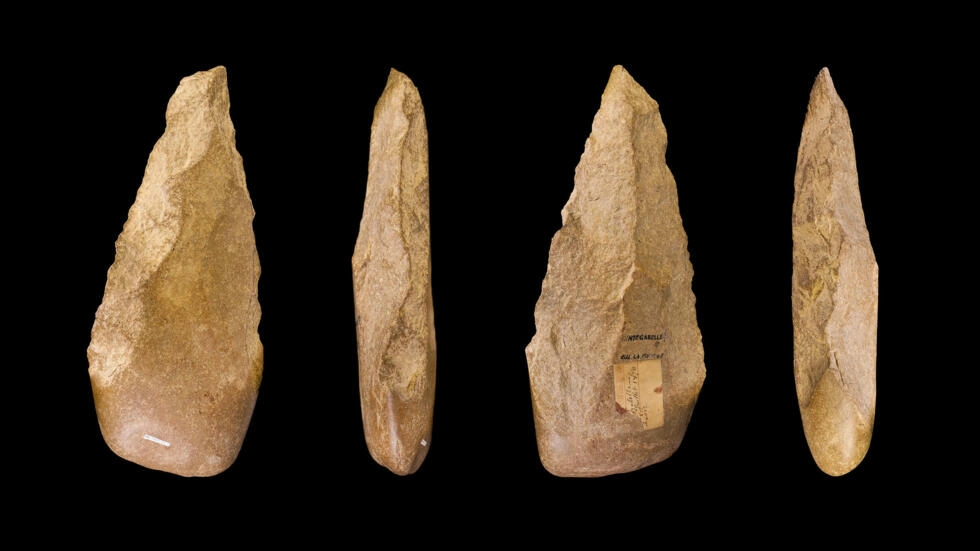The discovery of a stone tool in Morocco is the oldest in North Africa

A team of researchers from several nationalities has discovered a stone tool from the Acheulean period on the outskirts of the city of Casablanca in Morocco, and it is considered the oldest among this type of archaeological tools in North Africa, dating back 1.3 million years, he said today, Wednesday Moroccan researchers participated in the research program.
Until now, archaeologists believed that the Acheulean civilization, which was characterized by the innovation of two-sided tools, during the Lower Paleolithic period, arose 700,000 years ago in this part of North Africa.

The Moroccan archaeologist, Abdel Wahed Ben Nasr, explained that the discovered tool dates back to an era almost twice as old, which gives Morocco its position in this field “on the scale of the African continent”, as documented discoveries show that the Acheulean in East Africa dates back to about 1.8 million years. It was found in the south of the continent 1.6 million years ago.
As for the co-director of the French-Moroccan “Prehistory of Casablanca” program, Abderrahim Moheb, he considered, during a press conference in Rabat, that this “important” discovery contributes “to enriching the discussion about the emergence of Acheulean in Africa.”
Seventeen Moroccan, French, and Italian researchers participated in this research, published in the British journal Nature Report.

The research is based on the study of stone tools (two-sided, axes, or cores), and geological data extracted from the Touma 1 site, located west of Casablanca, where excavations have been conducted since the 1980s.
At the site, archaeologists discovered “one of the richest Acheulean communities in Africa,” according to Mohib, who stressed the importance of this discovery given that it relates to the “prehistoric era, which is a complex period for which only a little data is available.”
The research also made it possible to discover “the oldest human settlement in Morocco,” according to what the co-director confirmed, explaining that they are “variants of Homo erectus.”
In 2017, archaeologists discovered in the prehistoric site of Mount Irhoud (southwestern Morocco) the remains of a modern human, or “homo sapiens,” dating back 300,000 years, which is the oldest in the world.
This discovery contributed to a radical change in the outlook on human evolution.
Source: websites

